The price of power in the United Kingdom, 1300-2000
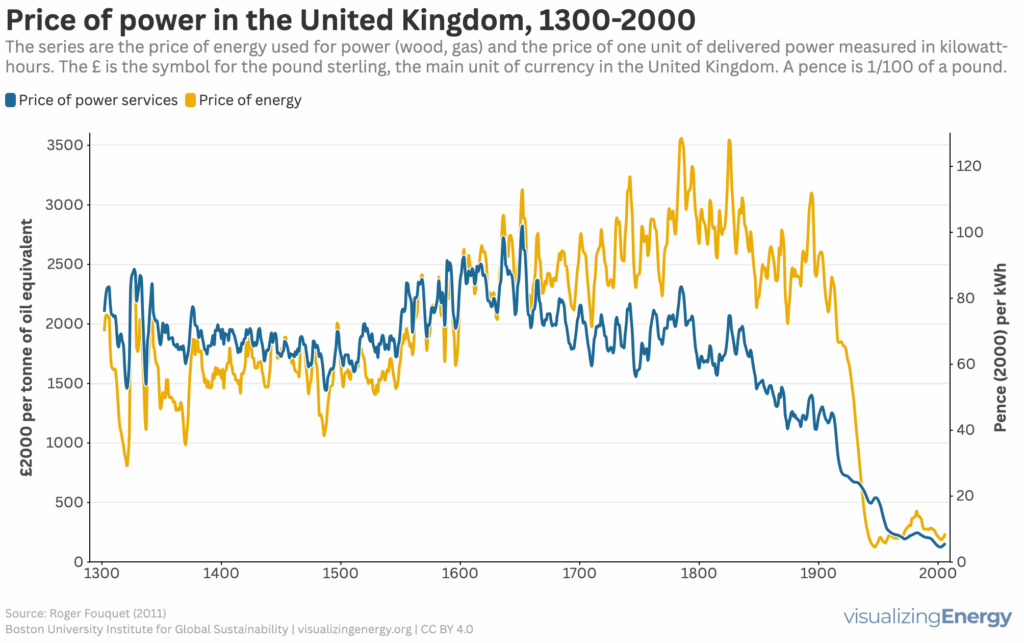
One outstanding feature of historical energy transitions was the change in the cost, power, and efficiency of the energy converters that humans used to perform useful work. These included animate energy converters such as people and draft animals, and inanimate energy converters such as water wheels, windmills, sailing ships, steam engines, internal combustion engines, and […]
Watch the history of hydropower plants in the United States
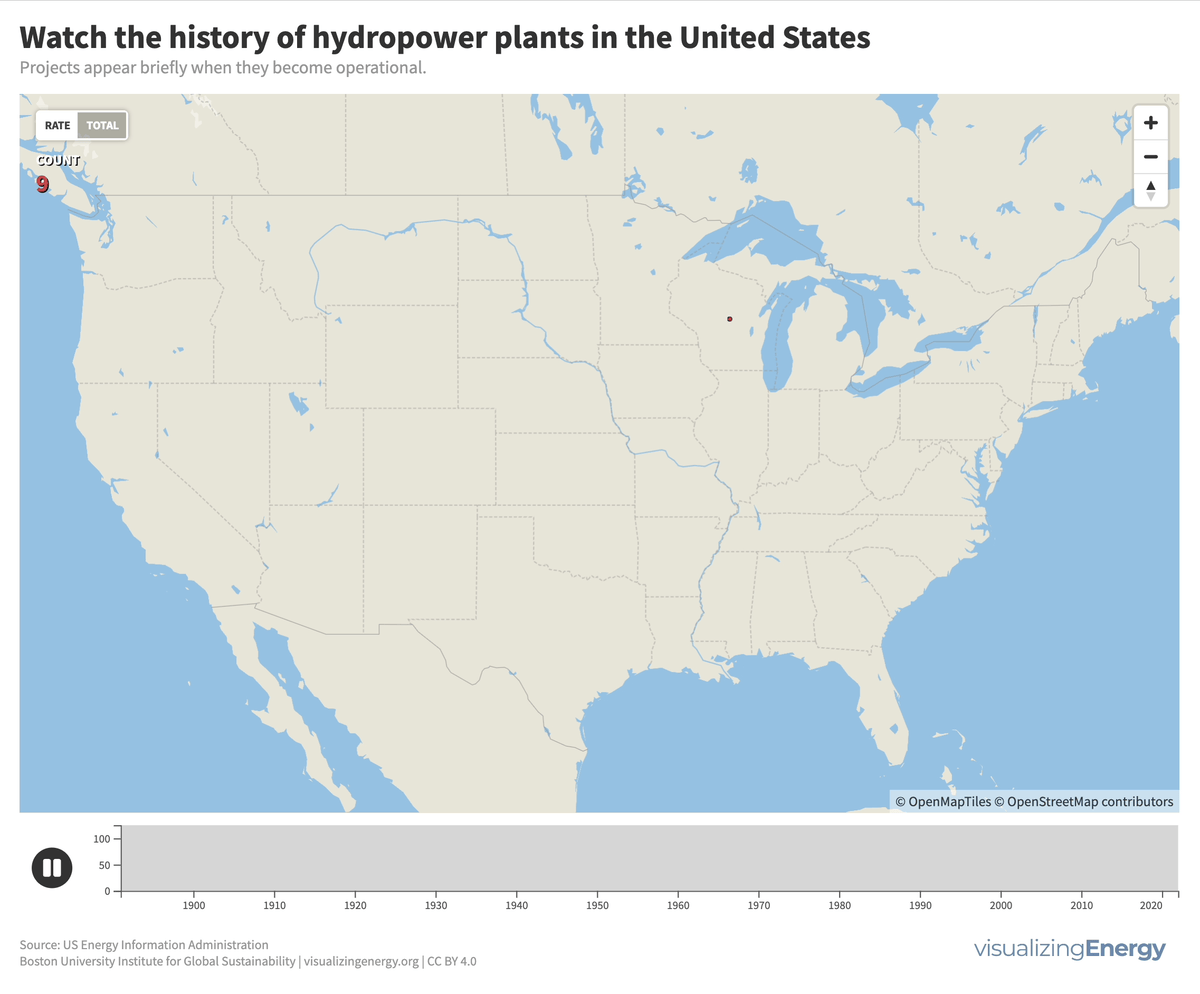
More than 4000 hydroelectric dams have been built in the United States since the late 19th century, representing six percent of all-time additions to electric generation capacity from all sources.
The price of household heating in England, 1300-2000
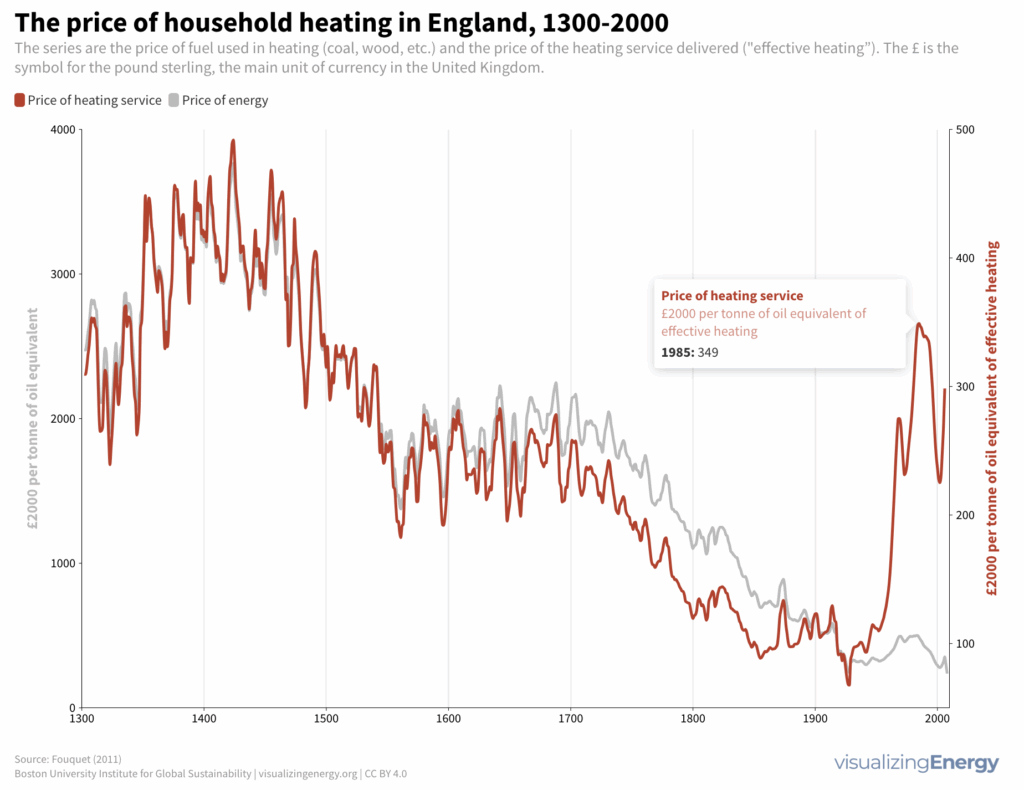
Energy historian Roger Fouquet’s analysis of historic energy transitions in household heating in England from 1300 to 2000 reveals interesting trends. The shift from wood to coal and later to natural gas resulted in fluctuations in fuel prices. Despite the increase in energy costs, improvements in technology and air quality led to a significant decrease in the price of heating services by 2000.
Global nuclear reactor startups and retirements, 1951-2024
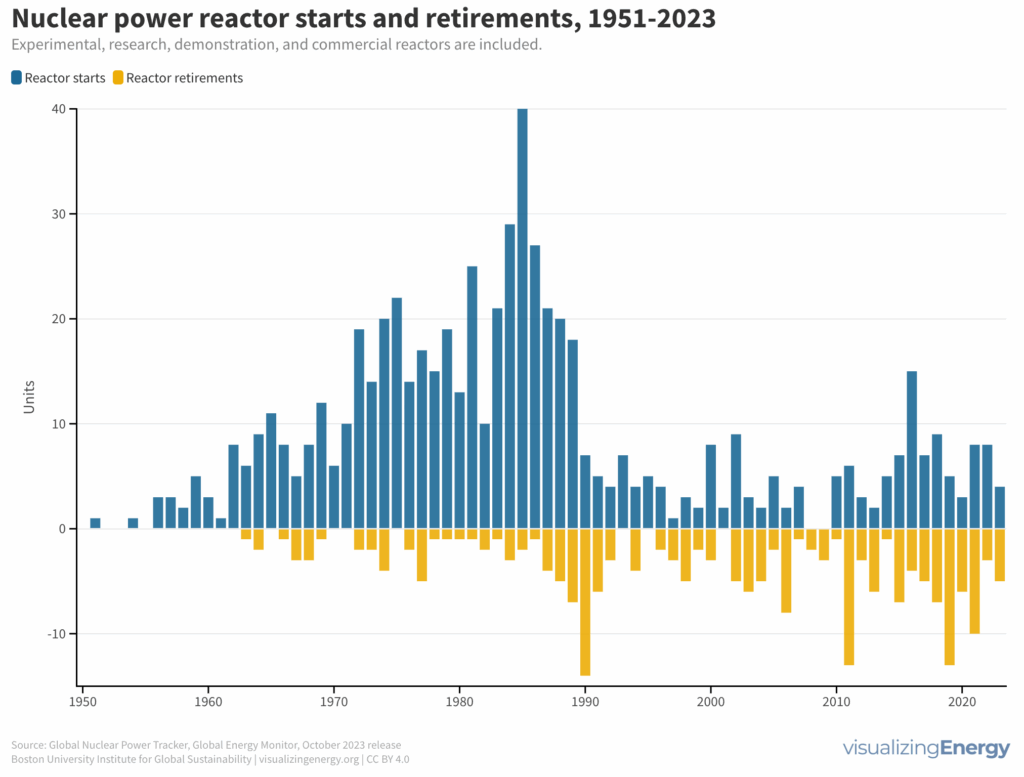
The global nuclear power industry has experienced significant shifts since its post-WWII expansion, with a sharp decline in new reactor starts from the 1990s onwards. More recently, some countries have sought to replace fossil fuels with nuclear power to address emissions and energy security. However, challenges remain in demonstrating the promised benefits of new reactor designs.
The history of oil production in the United States
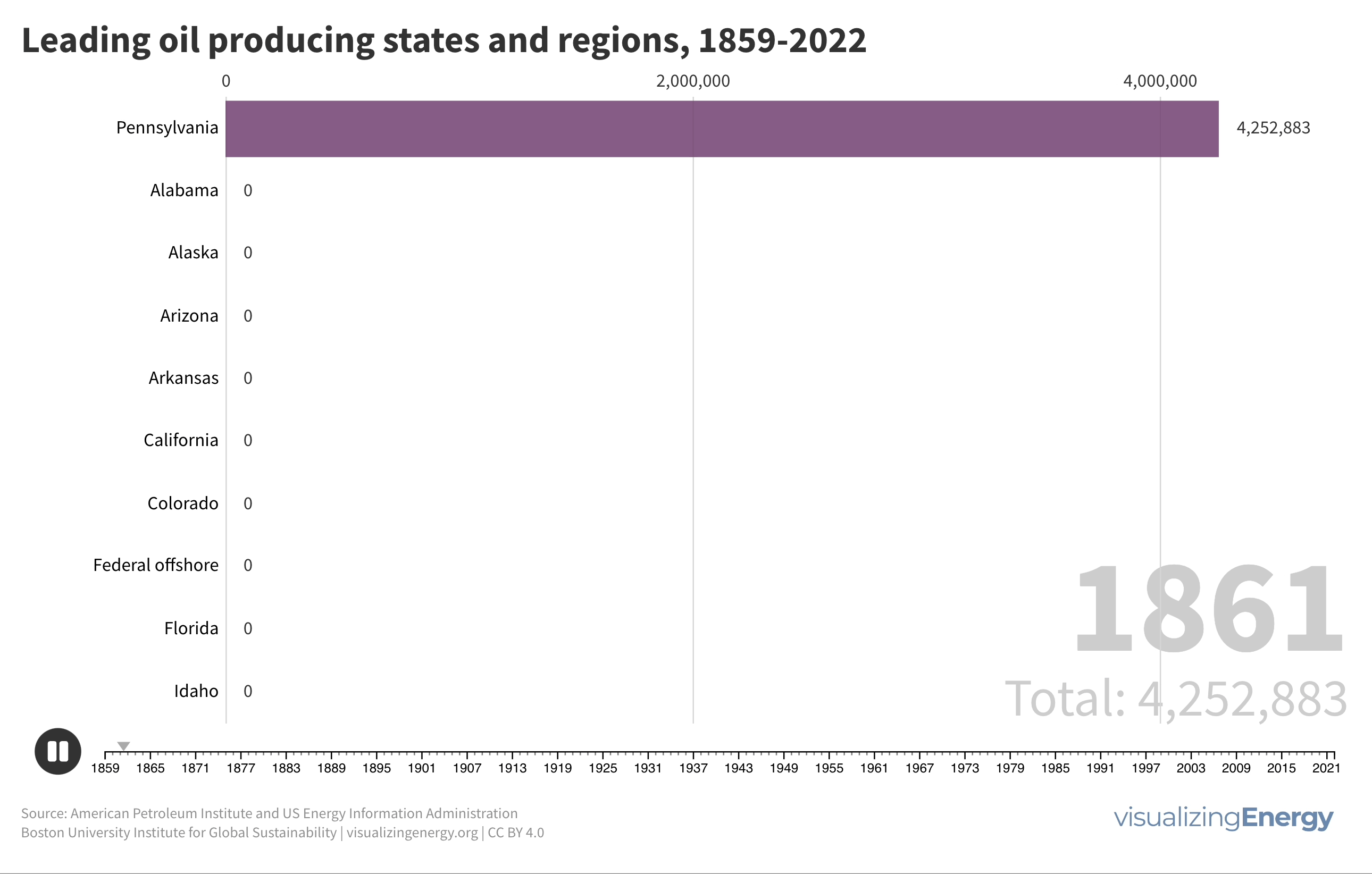
The United States has played a significant role in global oil production, contributing 17% since 1900, with Texas being a major player, accounting for one-third of the nation’s oil production. Technological advancements like hydraulic fracturing and horizontal drilling led to record U.S. oil production in the 2010s, making the country the world’s largest oil producer and a net oil exporter.
Watch the history of natural gas power plants in the United States
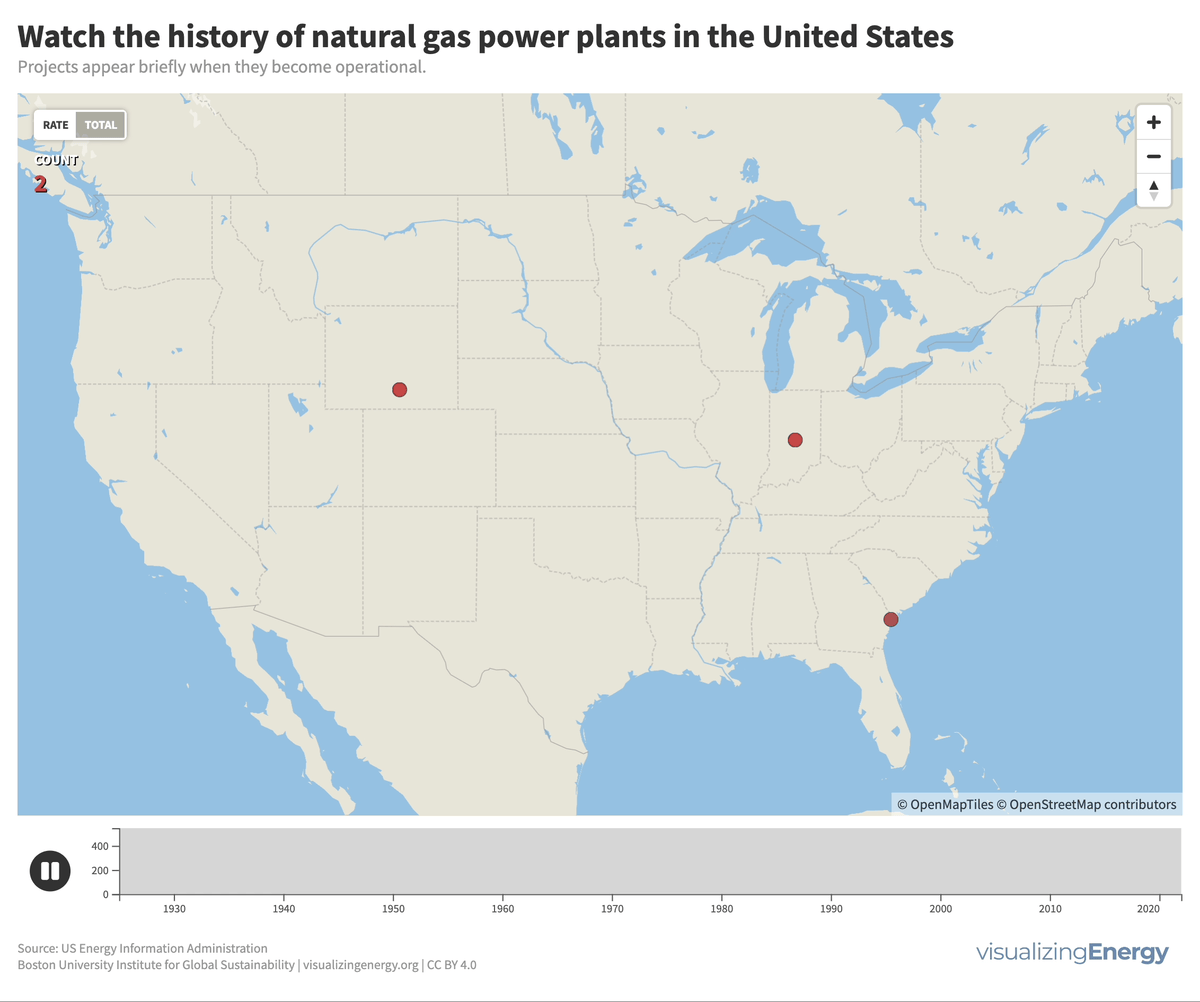
Since the 1920s, natural gas-fueled power plants grew gradually. After WWII, advancements in technology and fracking increased US electricity generated by natural gas from 16% in 2000 to 38% in 2021.
Watch the history of waste-to-energy power plants in the United States
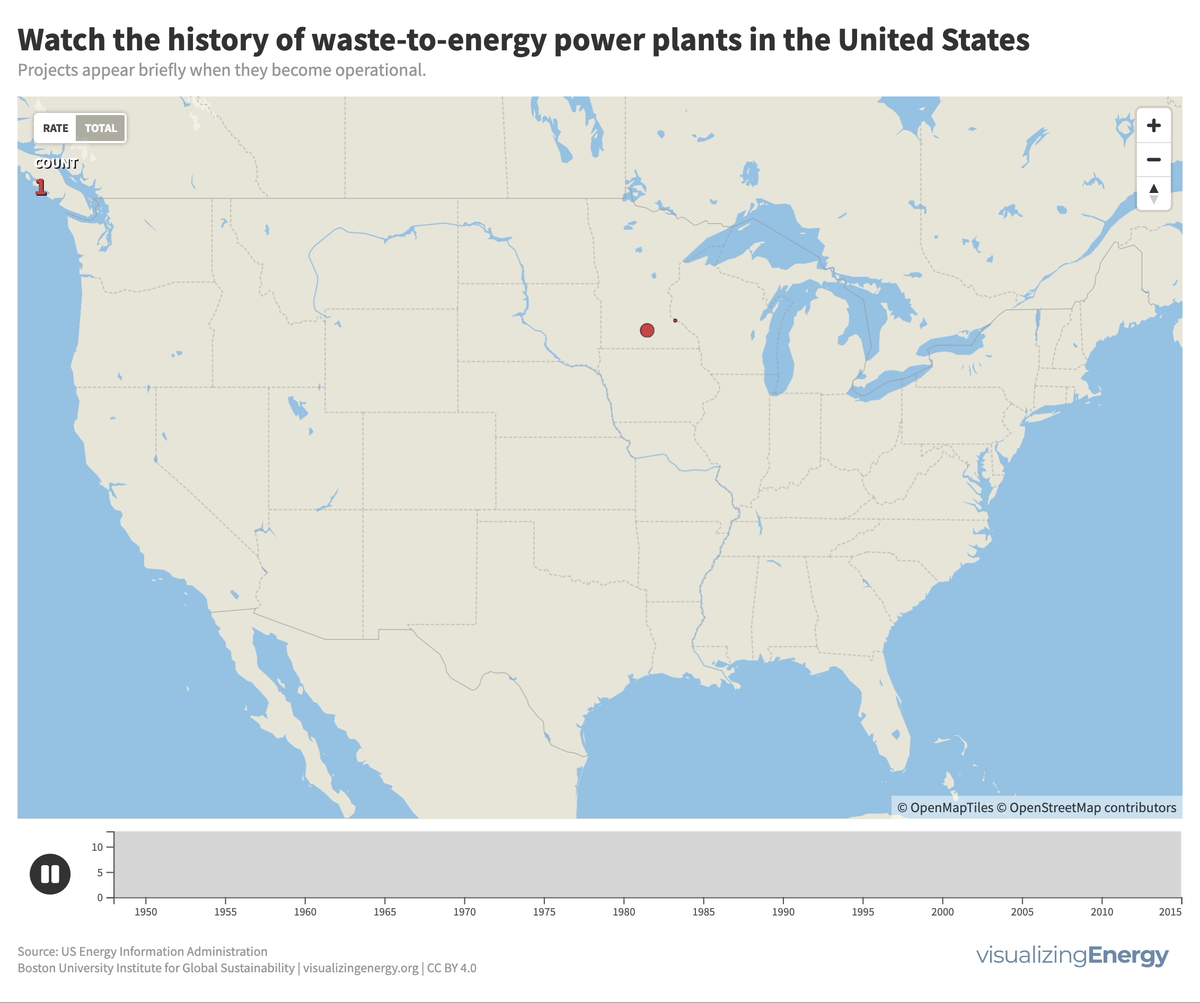
Waste-to-energy (WTE) plants in the US burn municipal solid waste to generate electricity, contributing less than one percent of the total. Initially developed due to landfill space scarcity, the renewable classification is disputed due to non-biogenic waste. Few new facilities have been built since the 1990s due to opposition, high costs, and increased focus on recycling and waste reduction.
The history of global oil production
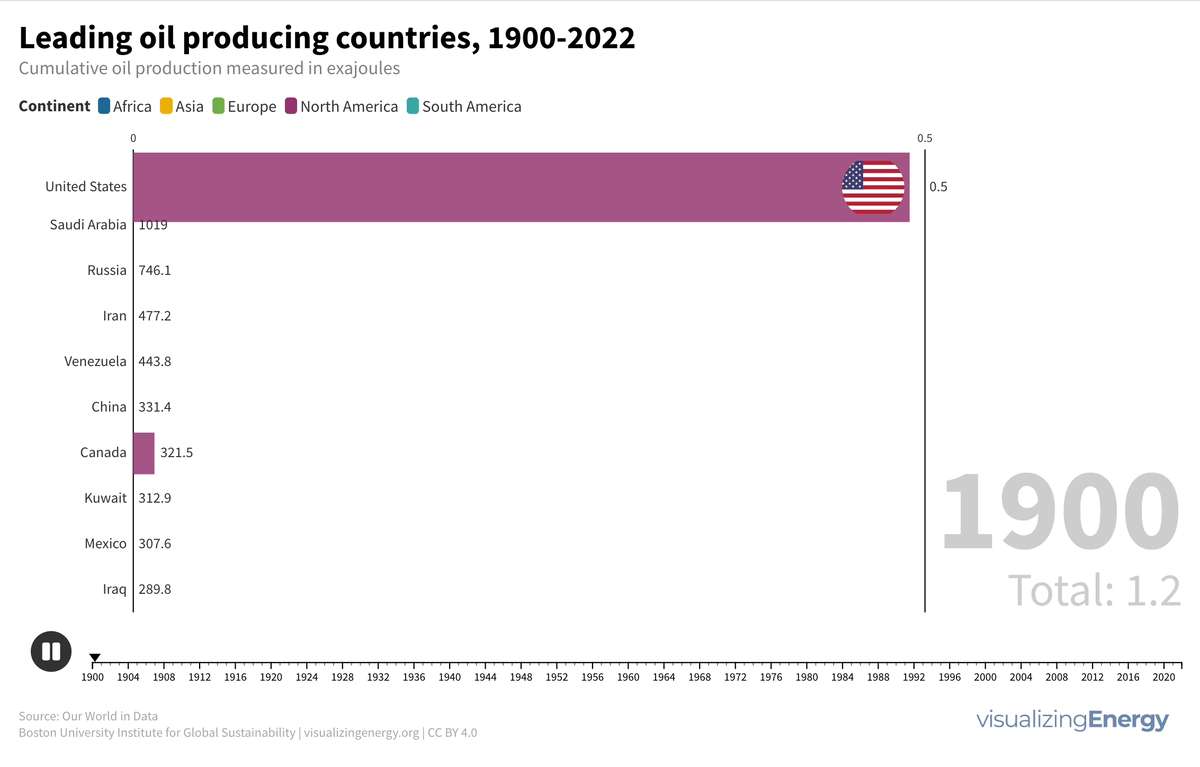
The commercial extraction of oil began in the 19th century in the US and Russia, initially for kerosene production. The introduction of the internal combustion engine increased oil demand. The Spindletop discovery in 1901 accelerated US oil production. OPEC’s formation in 1960 and market conditions led to price volatility, with consumption rising steadily in the 2000s.
The history of natural gas production in the United States
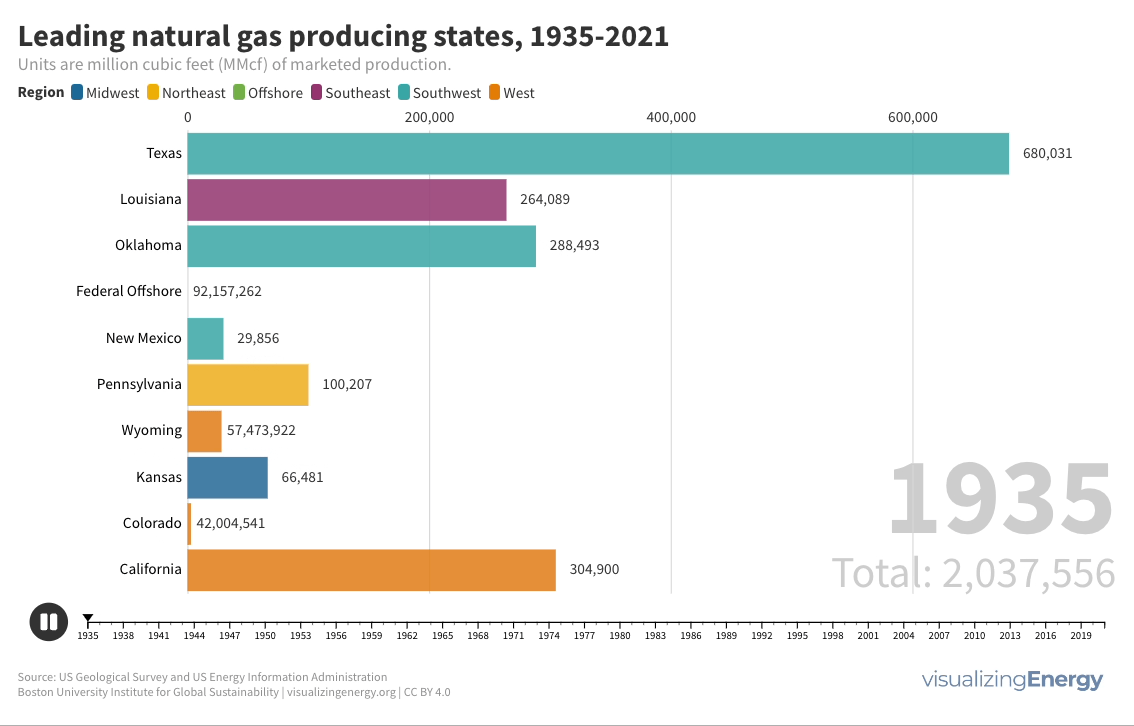
Approximately 4934 trillion cubic feet of gas have been produced globally since 1900, with the United States contributing around 30%. Texas and Louisiana account for over half of US natural gas production. The introduction of fracking led to a significant increase in production, making the US a major exporter.
The history of global natural gas production
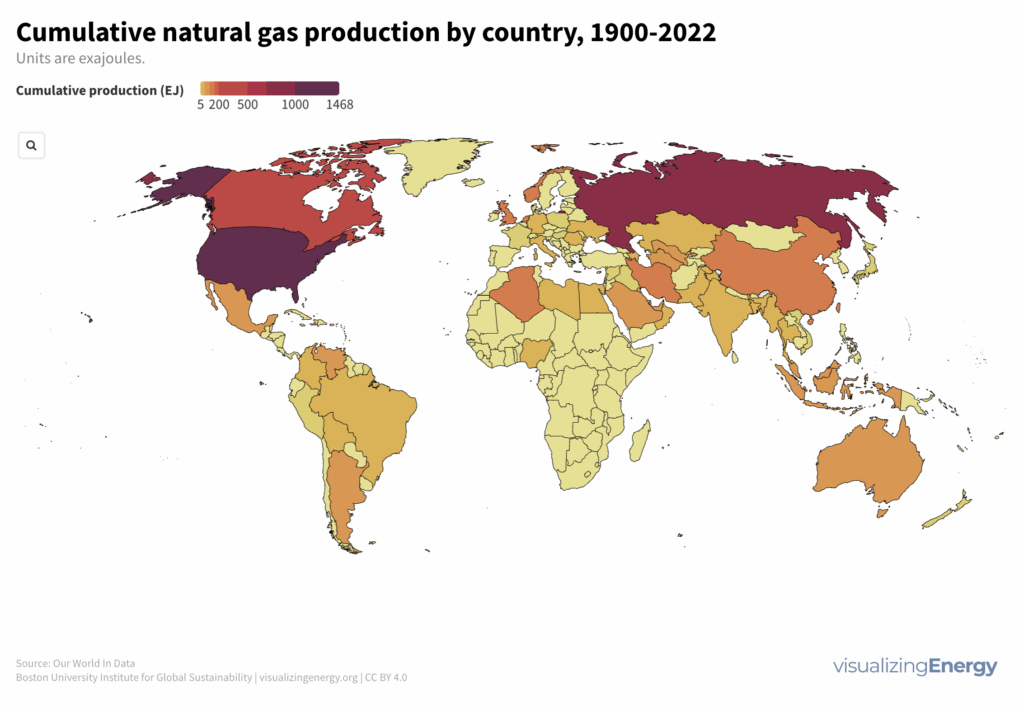
Natural gas, once a byproduct, now comprises a quarter of global energy. Advancements in infrastructure and technology, along with increasing demand, have propelled its rise. However, its contributions to greenhouse gases and geopolitical tensions present challenges for sustainability and climate change goals.
